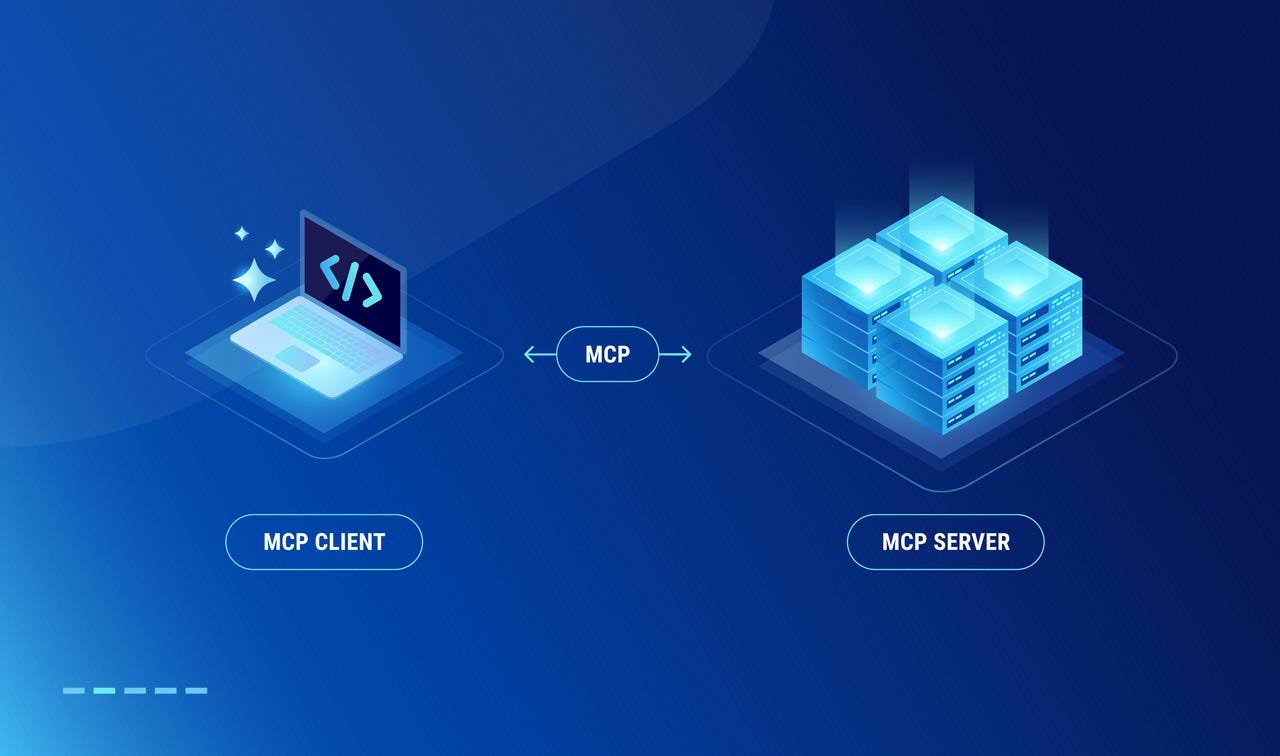Top Stories
Anthropic’s MCP: Transforming AI Integration for Enterprises NOW

URGENT UPDATE: Anthropic’s groundbreaking Model Context Protocol (MCP) is rapidly gaining traction among enterprise leaders, signaling a transformative shift in AI integration. As of today, CIOs must prioritize this open-source protocol, which connects AI applications with databases and web services, to stay competitive in the evolving tech landscape.
MCP is currently in its early stages but is poised to disrupt the existing integration framework. Its unique client-host-server architecture allows AI applications to interact with various external systems, effectively serving as a universal connector. This is crucial for the rise of agentic AI—autonomous systems that learn and adapt over time to achieve specific business goals.
In recent developments, Kevin McDonald, senior consultant at Hylaine, emphasizes MCP’s role as a foundation for agentic systems. “So far, it has performed better than expected,” he states, highlighting how MCP servers are enhancing operational efficiency by linking company knowledge bases and customer relationship management systems.
One noteworthy application is in the hospitality sector, where over 2,000 properties are leveraging Apaleo’s MCP server. This platform simplifies AI integration, allowing hotels to streamline workflows without extensive custom coding. According to Stephan Wiesener, CTO of Apaleo, early adopters are already witnessing significant improvements in revenue management and operational oversight.
In revenue management, AI agents utilize MCP to autonomously access and analyze booking data. This enables hotels to identify trends and adjust pricing in real-time, significantly enhancing decision-making processes. Furthermore, these systems generate automated morning briefings on key performance indicators, saving staff valuable time.
However, the excitement surrounding MCP is tempered by caution. Joseph Ours, partner and AI solutions director at Centric Consulting, points out that while MCP offers a promising standardization approach, its implementation varies widely. “The protocol is solid, but many MCP servers are ‘vibe coded’ and have varying degrees of quality,” he notes, stressing the importance of careful selection.
Despite these challenges, the momentum behind MCP is undeniable. In a significant move, OpenAI announced in March 2025 that it would integrate MCP into its ChatGPT desktop app, followed by Google DeepMind confirming support for MCP in its Gemini models in April 2025. This rapid adoption by major tech players highlights MCP’s potential as a standard for linking AI with external data sources.
The implications of MCP extend beyond mere integration; it represents a shift in how users interact with software. As Mohith Shrivastava from Salesforce explains, MCP creates a universal bridge that allows users to accomplish tasks through natural language, eliminating the need to navigate complex applications. “This will likely appeal to even the most reluctant consumers,” he adds.
As organizations begin to scale AI capabilities internally, MCP is paving the way for a new era of autonomous enterprises. With its ability to automate complex workflows and facilitate dynamic communications between systems, MCP is not just a tool; it is becoming integral to the future of business operations.
In conclusion, the adoption of MCP is accelerating, and organizations must recognize its importance NOW. The future of AI integration is unfolding rapidly, and those who act swiftly will be positioned at the forefront of this revolution. Stay tuned for further updates as MCP continues to evolve and reshape the enterprise landscape.
-

 Business1 week ago
Business1 week agoIconic Sand Dollar Social Club Listed for $3 Million in Folly Beach
-

 Politics1 week ago
Politics1 week agoAfghan Refugee Detained by ICE After Asylum Hearing in New York
-

 Health1 week ago
Health1 week agoPeptilogics Secures $78 Million to Combat Prosthetic Joint Infections
-

 Science1 week ago
Science1 week agoResearchers Achieve Fastest Genome Sequencing in Under Four Hours
-

 Lifestyle1 week ago
Lifestyle1 week agoJump for Good: San Clemente Pier Fundraiser Allows Legal Leaps
-

 Health1 week ago
Health1 week agoResearcher Uncovers Zika Virus Pathway to Placenta Using Nanotubes
-

 World1 week ago
World1 week agoUS Passport Ranks Drop Out of Top 10 for First Time Ever
-

 Business1 week ago
Business1 week agoSan Jose High-Rise Faces Foreclosure Over $182.5 Million Loan
-

 Science1 week ago
Science1 week agoMars Observed: Detailed Imaging Reveals Dust Avalanche Dynamics
-

 Entertainment1 week ago
Entertainment1 week agoJennifer Lopez Addresses A-Rod Split in Candid Interview
-

 World1 week ago
World1 week agoRegional Pilots’ Salaries Surge to Six Figures in 2025
-

 World1 week ago
World1 week agoObama Foundation Highlights Challenges in Hungary and Poland









